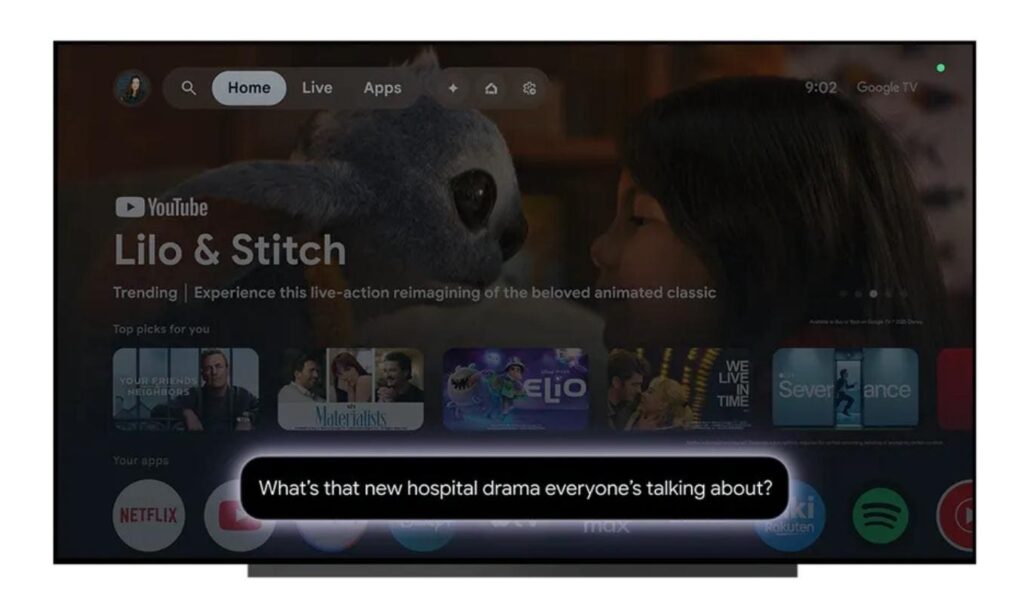
Google is set to transform the living room experience by introducing its Gemini AI assistant to smart TVs, starting with TCL’s new QM9K series. This development marks a significant leap from the conventional voice commands associated with Google Assistant, promising a more interactive and conversational engagement with your television.
The integration of Gemini into TVs allows users to have full conversations, rather than relying on rigid voice commands. For instance, viewers can express their mood for a specific type of show or movie, request a recap of previous seasons, or inquire about reviews to decide if a show is worth watching. This conversational capability is a notable enhancement, as demonstrated by Google’s examples during the announcement of the update.
Enhanced Entertainment and Beyond
Gemini’s capabilities extend beyond entertainment. Google positions the AI as a versatile tool for learning and lifestyle enhancement. On a large screen, Gemini can guide a child through a science project, assist in preparing a quick dessert, or provide YouTube tutorials for learning new skills, such as playing the guitar. The interaction feels more like conversing with a knowledgeable friend, thanks to its ability to handle natural follow-up questions.
TCL’s QM9K is the first TV to feature Gemini and includes a presence sensor that transforms the TV into an information hub, displaying weather updates, calendar events, and camera feeds when someone enters the room. This feature further integrates the TV into the smart home ecosystem.
Expanding Reach and Future Prospects
Later this year, Gemini will be available on other devices, including the Google TV Streamer, Walmart’s Onn 4K Pro, and Hisense’s 2025 U7, U8, and UX models, as well as TCL’s QM7K, QM8K, and X11K sets. With over 300 million devices running Google TV or Android TV OS globally, this rollout could be the tipping point for making voice control on TVs a mainstream feature.
This development follows closely on the heels of the announcement of Gemini for Home, which is set to replace Google Assistant on Nest speakers and displays. The early access rollout began in October, with a major hardware event scheduled for October 1st. Gemini for Home promises more natural language controls, smarter routines, and proactive automation suggestions, enhancing the smart home experience significantly.
Expert Insights and Market Implications
Industry experts view this move as a strategic expansion of Google’s AI capabilities into the smart home and entertainment sectors. According to tech analyst Sarah Thompson, “Gemini’s integration into TVs and smart home devices represents a shift towards more intuitive and seamless user experiences. It positions Google as a leader in AI-driven home technology.”
“With Gemini, Google is not just enhancing TV functionality; it’s redefining how we interact with our devices at home,” Thompson added.
This development is part of a broader trend where tech companies are increasingly focusing on AI to enhance user interaction. Historically, voice assistants have struggled with user engagement due to their limited conversational abilities. Gemini’s introduction aims to overcome these challenges by offering a more natural and engaging user experience.
Looking Ahead
The introduction of Gemini to TVs is expected to influence the future of home entertainment and smart home integration. As AI technology continues to evolve, consumers can anticipate even more sophisticated interactions with their devices. This advancement not only enhances convenience but also sets a new standard for what users can expect from their home technology.
As Google continues to roll out Gemini across various platforms, the implications for the tech industry are significant. The move represents a step forward in the integration of AI into everyday life, potentially reshaping consumer expectations and driving further innovation in the sector.







